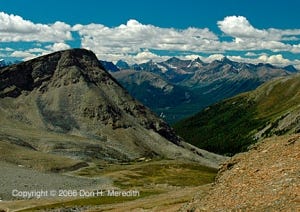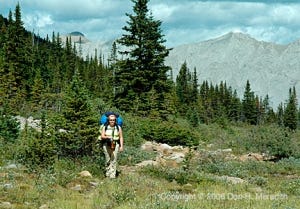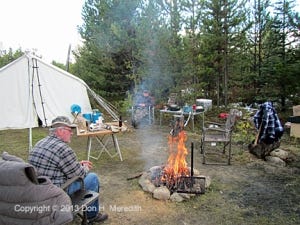Freedom and Climate Change: A Numbers Game
“Freedom’s just another word for nothin’ left to lose
And nothin’ ain’t worth nothin’ but it’s free”
—Kris Kristofferson, Me and Bobby McGee
Despite the overwhelming scientific evidence and the daily news reports of one climate disaster after another, many people still resist accepting human-caused climate change as a reality. I believe at least some of that resistance is due to the restrictions on our freedoms such acceptance would require if we wish to avoid the worst of the catastrophe. The problem is we will lose a lot more of our freedoms if we don’t respond to the reality. (For more information on climate change go to 62 Shocking Climate Change Facts.)
Freedom is something all citizens of a democracy are supposed to cherish and indeed defend. After all, democracy is all about the freedom to choose our own leaders and governments. However, there’s a lot more to freedom than just deciding who governs us.
Freedom is generally defined as “The power or right to act, speak, or think as one wants.” (Oxford Dictionary). Of course, the reality is different. Society through its legal systems has determined there are limits to how people can act or speak. Thus, some of our freedom is restricted to protect the rights of others. Obvious examples include prohibitions against murder, theft, physical or verbal assaults, publicly defaming others and hate speech, just to name a few. Generally, we accept those rules so society does not degenerate into chaos. But there are other factors that affect our freedoms, factors that governments and individuals often ignore, or can’t or won’t control.
Population growth is one such factor. Our human population on this planet has been growing exponentially over the last couple of centuries because of advances in public health, medicine, agriculture and technology generally. Currently we are approaching eight billion people at the rate of 82 million+ people per year (World Population Clock). Or put another way, the human population of this planet increases (number born minus number die) by over 9,000 people every hour. That’s a lot of bodies requiring food, water, shelter and access to jobs and places to recreate. There are only fixed amounts of those resources available at any one time. So yes, there is a limit to the number of people our earth can support.
Eminent biologist Edward O. Wilson wrote in his 2003 book, The Future of Life, the gross human carrying capacity of the earth is around 10 billion people, provided that every bit of arable land on the planet is put into maximum agricultural production and all people become vegetarians (a lot more vegetarians can be supported off the land than meat eaters because vegetarians eat lower on the food chain where more energy is available). Of course, that’s not going to happen. Over the last few decades much cropland has been paved over, contaminated or lost to climate change (e.g., desertification, floods, rising sea levels), and meat eating is an important component of many cultures.
As we exceed our carrying capacity, life will become more uncomfortable for more and more people. Indeed, we are already seeing this in terms of increases in worldwide conflicts and the number of people being forced to migrate from distressed regions to seek refuge in more prosperous areas of the planet, such as Canada.
So, what is a carrying capacity that will allow most people to live comfortable lives? There is much debate about the answer. Some believe it is 3.5 to 4 billion people, or the population of the earth back in the 1970s. Others believe it could be 5 to 7 billion people, provided we can maintain our current agricultural production. With climate change, the latter will be difficult.
Thus, we are already over our carrying capacity and are just now starting to realize it. We’ve all seen the symptoms, even here in Canada, from rush-hour traffic gridlock in our cities, through crowded highways, campgrounds, beaches, and boat launches; and to the increased stress and frustration our population is experiencing as expressed in mental health issues.
The climate-change crisis is directly related to human population growth. The more people there are, the more that burn fossil fuels, especially in developing countries. As economies improve, citizens want more of what more prosperous countries have, and more fossils fuels are burned to achieve those goals. Indeed, many of the changes automobile and airplane manufactures have made to improve engine efficiency and reduce fuel consumption are largely negated by the increase in vehicle use. The improvements help but they don’t slow the rate of fuel consumption and dispersal of greenhouse gases. Meanwhile, wildfire, rising sea level, air and water pollution threaten all our freedoms.
If you are someone who enjoys the outdoors here in Canada, one of the best ways to assess how population growth is affecting your freedom is to compare what’s been happening in our wild places over the years. In the 1970s and ‘80s, it wasn’t all that difficult to get a campsite in our provincial and national parks, even in the summer on a weekend. There were no reservation systems, and if you got to the campground by 4:00 p.m. you were pretty likely to obtain a site. Not these days. If you want to go camping in our parks in the summer, you should reserve your site online starting in the winter. Sure, parks usually keep a few sites open on a first-come-first-served basis, but those sites are snapped up very quickly each day. Reservations are also required for people to hike and camp on the popular trails in the backcountry of those parks. These restrictions are necessary if we want to protect the reasons we go there in the first place. But they do erode our freedom to move where we want when we want. As more people come into our country and province, it will only get worse.
Outside our parks, our wildlands are also getting crowded. Random camping used to be a way to get away from the crowds at designated sites, but now many random sites are also crowded, as more and more people seek ways to camp the way they want and not be restricted by the confines of an officially designated campsite. But because such camping is not regulated, campers often leave a mess and more land is denigrated, reducing everyone’s enjoyment of the outdoors—another freedom restricted.
And it’s not just the crowding. How many lakes and streams can you fish and legally keep one to eat? It wasn’t long ago in Alberta you could harvest fish at most of them and with generous catch limits. It was indeed possible to eat several meals of wild fish throughout a season. Not anymore. Eating a wild Alberta fish is indeed becoming an uncommon luxury, and in many cases requires a special licence and tag.
And if you’re a hunter, how easy has it been to get a licence for game in an area you like to hunt? You’re having to wait longer and longer for a special hunting licence issued on a draw.
But it’s not just overexploitation that’s threatening our fish and wildlife. It’s also habitat destruction as more and more of us require shelter, food and energy. Logging, oil and gas exploration, unregulated off-highway vehicle use, rural residential development and urban expansion have all contributed to reduced fish and wildlife habitat. Reduced habitat means fewer wild animals to see and overall less wild land providing the environmental services all life requires. So, our freedom to enjoy and benefit from wild places is more restricted, every day.
The more people there are in a country, province or region, the smaller the share of the resources each of us has, including access to wild country to fish, hunt, hike or just enjoy for its own sake. So, even though we live in a relatively wealthy country, we are feeling the effects of overpopulation. Climate change is just one major consequence.
What Can Be Done?
With regard to population growth, not much. China tried to control its growing population in 1979 through its one-child program, where couples were encouraged—if not forced—to have but one child. Although the program somewhat reduced population growth, it was a disaster because the government didn’t consider cultural issues, including the need for families to have a male heir, and for aging parents to have help in their old age.
No. Government control of population is not possible, especially in a democracy. How many children you have is one freedom that is sacrosanct. Unfortunately, such decisions in so-called developing countries are often not decisions at all. If you don’t have access to birth control or are confined by your culture/religion to not regulate your births, you will have more children.
What is possible in a democracy is for people to decide, on their own, to keep their families small. And this can only happen if people have access to birth control, and can see a sustainable future.
The bottom line is the earth’s human population is going to continue to grow until there are no longer sufficient resources to sustain such growth, a point we might already be reaching. Once that happens, the human crises will only get worse (for a likely, check out Climate Crisis Wipe Out). It won’t happen at once. But what will happen in the near future is that a lot more people will be showing up at our borders wanting asylum or to otherwise immigrate to escape intolerable conditions at home or to just improve their lives.
My question is just what is Canada’s human carrying capacity? How much of that capacity is dependent on imported food and goods? Would we be able to support our present and future population if we had to supply all our food from within our borders?
There are no answers to these questions because few want to consider them. We prefer to believe we have the freedom to buy food, goods and services from anywhere in the world. Yet, with climate change, population growth, etc. other countries may soon not be able to provide food in excess of what their own populations require.
Until we have a national and indeed global conversation about these issues and how to mitigate them, we will continue on down the same perpetual-growth road until our freedoms will be restricted to basic survival.
Copyright © 2020 Don H. Meredith, All Rights Reserved
Comments are always welcome (below).
Visit me on my website where you’ll find more stories and pics:
www.donmeredith.ca
Interested in reading an award-winning outdoor adventure novel? Check out The Search for Grizzly One and Dog Runner.




